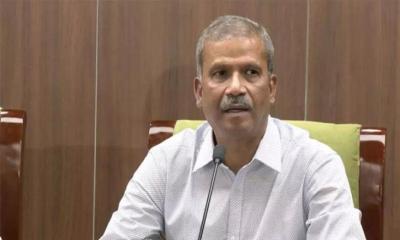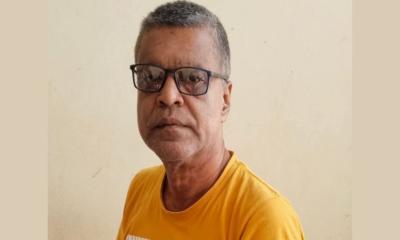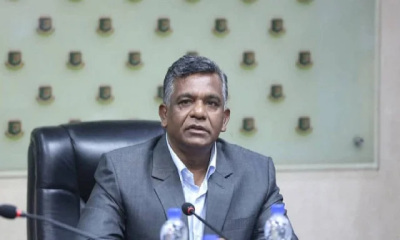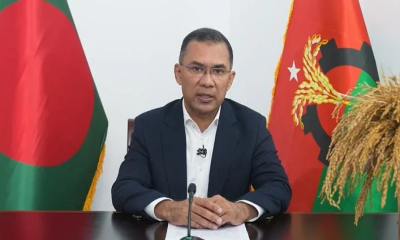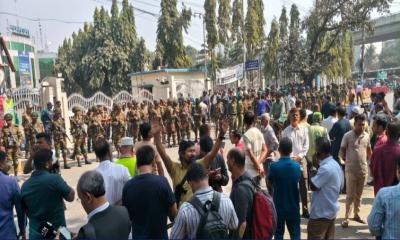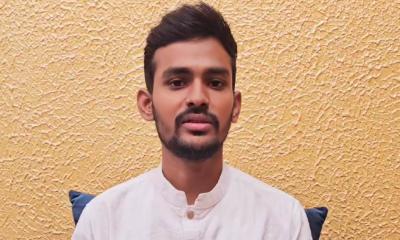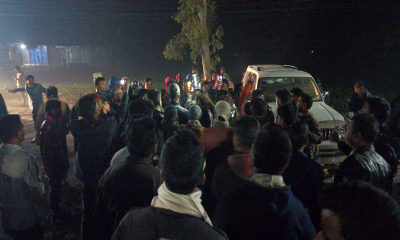In an interview with The Hindu on Monday, Chief Adviser Muhammad Yunus stated that the interim government has no issue with the Awami League (AL) participating in the upcoming elections.
He explained that the decision regarding which political parties would be allowed to contest had already been made by the BNP.
Yunus said, “We didn’t want to take decisions about the political party, and the BNP has done that, saying that all political parties must contest elections. So they already made the verdict, and we cannot defy the opinion of a major party of the country.”
When asked if he personally had any objections to the Awami League contesting the elections, Yunus clarified, “I’m not a politician to choose one party or another party. I am facilitating the politicians’ wishes.”
Yunus also addressed reports from Indian media about growing radicalism in Bangladesh and concerns over the safety of minorities.
He dismissed these reports as “propaganda” and expressed his views on the state of Bangladesh-India relations.
On the topic of former Prime Minister Sheikh Hasina`s stay in India, Yunus said that it was not currently a problem.
“Her living there... at least for the time being, is not a problem,” he stated. However, he explained that Hasina’s political activities were an issue. “Talking to Bangladesh is the problem. She is talking to Bangladeshi people, and it is political. She is continuing her political activities, which is the problem,” he said.
Yunus also mentioned an audio clip where Hasina allegedly encouraged protests and demonstrations, instructing protesters to use images of US President-elect Donald Trump to protect themselves from police.
Yunus called this interference in Bangladesh’s internal and external matters.
Regarding the lack of an extradition request, despite an existing treaty with India, Yunus explained, “I think there are legal steps which we are taking towards, but we have not come to that stage yet.”
He warned that if India were to deny an extradition request, it could damage relations between the two countries.
“Are you saying India would violate the treaty? Yes, there are such clauses, but if the Indian government were to use them to keep there, that will not make a very happy relationship between us,” he added.
Yunus stressed that such a decision would not be “forgiven by any government that comes after us.”
On the issue of the treatment of minorities in Bangladesh, Yunus dismissed claims made by the Indian government as “propaganda.”
He recalled a conversation with Indian Prime Minister Narendra Modi on August 16, where he clarified that reports of mistreatment were exaggerated.
“In my first phone call with Prime Minister Modi, that’s precisely what he said, that minorities are being treated badly in Bangladesh and so on. I told him, very clearly, that it’s propaganda,” he said.
Regarding human rights reports that highlighted political violence and extrajudicial killings, Yunus responded, “Let people judge, and compare what this government has done, and what the other government has done. I’m not going to debate. We have ensured press freedom. There’s no doubt about it.”
Yunus also addressed US President Donald Trump’s comments about minorities in Bangladesh, suggesting that Trump might not have all the facts.
“When he comes to the reality of dealing with Bangladesh, Trump will be surprised at how different Bangladesh is from the impression he has been given,” Yunus remarked.
On the future of South Asian regional cooperation, Yunus stressed the importance of keeping SAARC functioning despite tensions between India and Pakistan.
“It shouldn’t be that the whole group disappears only because of one relationship between two countries,” he said, adding that even if issues between India and Pakistan were suspended, SAARC should continue.
Yunus spoke positively about Bangladesh-India relations, sharing that the country hopes to build a stronger bond with India, similar to the European Union, with free movement and trade.
“Our dream is imagining a relationship like the European Union . That’s the direction we want to go,” he said.
In an interview with Al Jazeera, Yunus discussed the upcoming elections and the role of the interim government.
He confirmed that the government would move forward with election preparations as long as the political parties were in agreement.
“It is all a question of what people want, the political parties want. If the political parties say forget about it , hold the election – we will do it,” he stated.
Yunus made it clear that the interim government’s term would not exceed four years.
“We are an interim government, not a perpetual one,” he said, adding that the government’s intention was to complete the process as quickly as possible.
“Our intention is to get it done as quickly as possible,” Yunus said.
When asked if he would stand for election, Yunus firmly replied, “I am not a politician. I enjoy my role, and what I have been doing at the last stage of my life. I am not going to change that.”
Yunus’s interview touched on various topics, including state reforms, minority rights, the return of Sheikh Hasina from India, and the relationship between Bangladesh and India.


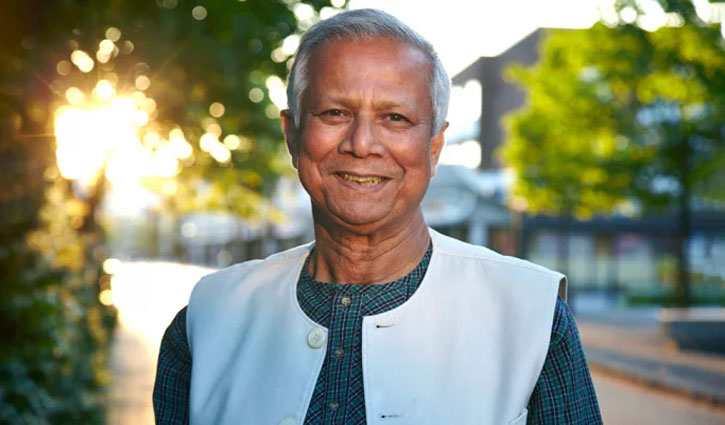







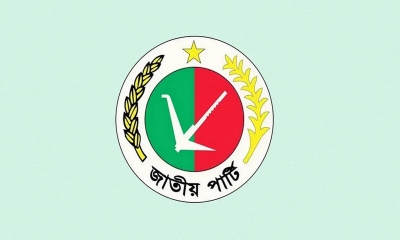
-20260216055149.webp)




